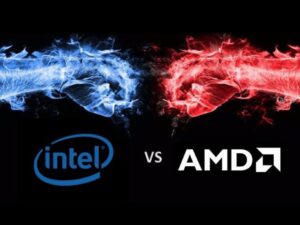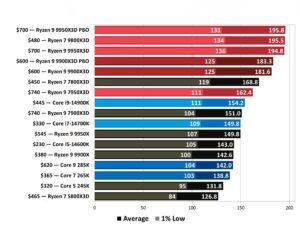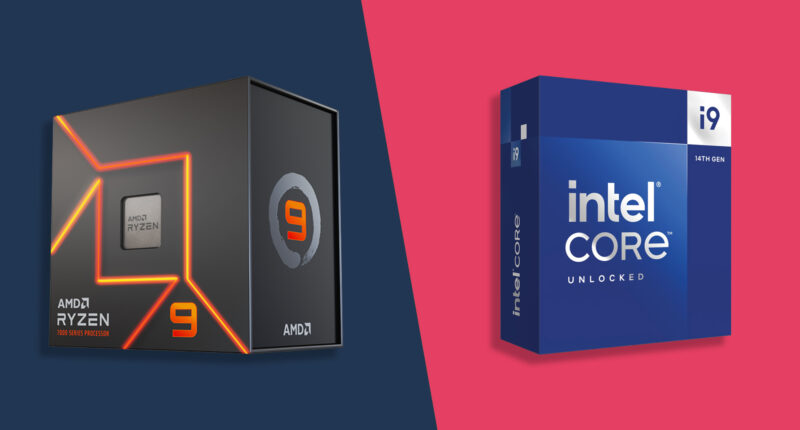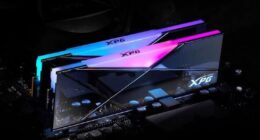Intel vs AMD: Which Should You Buy?
The rivalry between Intel and AMD has shaped the processor market for decades, offering consumers a choice between two titans competing for dominance in performance, innovation, and value. Whether you’re building a gaming rig, a content creation workstation, or a budget-friendly PC, the decision between Intel’s Core series and AMD’s Ryzen lineup is critical. In this comprehensive guide, we’ll break down the key differences, performance benchmarks, and real-world use cases to help you decide which CPU brand best suits your needs.

A Brief History of Competition
For years, Intel held an uncontested lead in single-core performance, making it the go-to choice for gamers. AMD, however, revolutionized the market with its Ryzen series in 2017, emphasizing multi-core efficiency and affordability. Today, both brands offer cutting-edge technology, but their strengths cater to different audiences.
Key Differences: Architecture and Innovation
Intel: Clock Speeds and Single-Core Power
Intel’s processors, like the 14th-generation Core i9-14900K, excel in single-core tasks thanks to high clock speeds and superior Instructions Per Clock (IPC). This makes them ideal for applications that prioritize burst performance, such as gaming.
AMD: Multi-Core Dominance and Efficiency
AMD’s Ryzen 7000 series (e.g., Ryzen 9 7950X3D) leverages advanced 7nm and 5nm architectures, packing more cores and threads into its chips. This design shines in multi-threaded workloads like video editing and 3D rendering. AMD also integrates powerful integrated graphics in its APUs, appealing to budget-conscious builders.
Performance Comparison: Real-World Use Cases
Gaming: Low Latency vs. Core Power
- Intel: Delivers higher frame rates in many games due to stronger single-core performance. Ideal for competitive gamers seeking minimal input lag.
- AMD: Closes the gap with CPUs like the Ryzen 7 7800X3D, which uses 3D V-Cache technology to boost gaming performance. Excellent for streamers who game and encode simultaneously.
Verdict: Intel maintains a slight edge for pure gaming, but AMD’s top-tier chips are competitive.

Content Creation: Where AMD Shines
- AMD: The Ryzen 9 7950X3D’s 16 cores and 32 threads accelerate tasks like rendering and encoding. Software like Blender and DaVinci Resolve benefits from AMD’s multi-threading.
- Intel: While capable, Intel’s flagship CPUs often cost more for similar multi-core performance.
Verdict: AMD offers better value for content creators.
Everyday Use and Multitasking
Both brands handle everyday tasks (browsing, office apps) effortlessly. AMD’s efficient core distribution, however, makes it better for heavy multitasking—think streaming, gaming, and running background apps simultaneously.
Price-to-Performance: Budget Considerations
| Segment | Intel (e.g., Core i5-14600K) | AMD (e.g., Ryzen 5 7600X) |
|---|---|---|
| Mid-Range | ~$300, strong gaming performance | ~$250, better multi-threading |
| High-End | Core i9-14900K: ~$600 | Ryzen 9 7950X3D: ~$550 |
AMD often wins in cost efficiency, especially for mid-range builds. Their inclusion of coolers in non-X Ryzen models also reduces costs.
Software and Platform Compatibility
Both brands support modern operating systems and software, but subtle differences exist:
- Intel: Slightly better optimization in older games and enterprise software.
- AMD: Longer socket support (e.g., AM5 through 2025), allowing future upgrades without replacing the motherboard.
Power Efficiency and Thermals
AMD’s chips generally run cooler and consume less power, reducing long-term energy costs—a boon for eco-conscious users and smaller builds.
Conclusion: Which Brand Is Right for You?
- Choose Intel if:
- You prioritize peak gaming performance.
- You need cutting-edge single-core power for tasks like CAD or MATLAB.
- Choose AMD if:
- You’re a content creator, multitasker, or budget builder.
- You want future-proof upgradability and energy efficiency.
Final Advice: Assess your primary use case, budget, and long-term goals. Check benchmarks for specific applications and read user reviews. For more insights on PC hardware, visit Digital New IT.
Whether you opt for Intel’s raw speed or AMD’s versatile efficiency, both brands deliver exceptional performance tailored to modern computing demands. Your next upgrade awaits—choose wisely!









